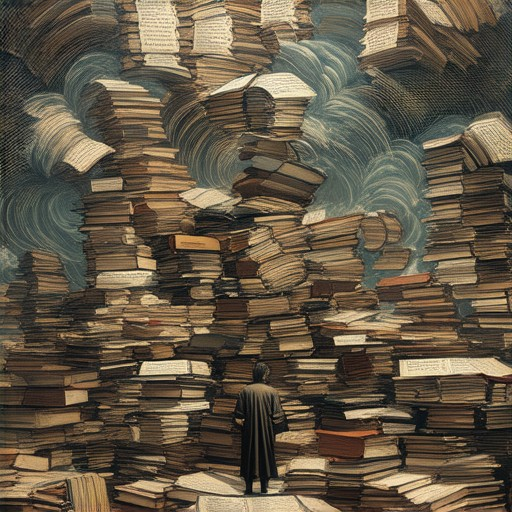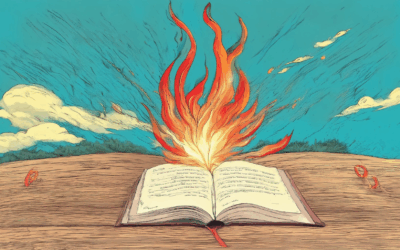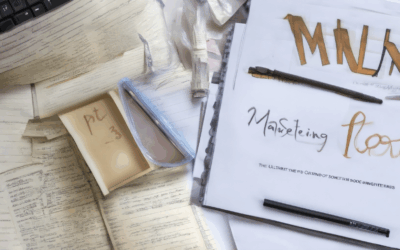Writing is often a journey of discovery, where every author seeks to unlock new dimensions of creativity. For many, finding literary inspiration is a game-changer—a spark that ignites ideas and propels words onto the page. Whether you’re crafting a debut novel, refining a memoir, or exploring the boundaries of poetry, understanding where to find literary inspiration and how to harness it is crucial. This article delves into the diverse sources of inspiration, strategies to overcome creative blocks, and how literary inspiration can help writers uncover their unique voice. By exploring traditional and modern avenues, we’ll examine how this essential tool can transform your writing and unlock your creative potential.
Key Takeaways
– Diversify your reading habits to unlock new creative perspectives by exploring diverse genres and styles.
– Channel your emotions for authentic storytelling success by reflecting on personal experiences.
– Connect with nature for fresh, relatable ideas by immersing yourself in outdoor environments.
– Analyze masterpieces to refine your storytelling skills by studying iconic works.
– Learn from rejection to grow as a writer by embracing failure and iteration.
– Join communities to spark creativity and gain feedback by collaborating and discussing with fellow writers.
– Establish objectives to push your creativity by setting clear goals and challenges.
– Try new forms to discover your unique voice by experimenting with different writing styles.
– Connect with peers for fresh perspectives and support by engaging with literary communities and forums.
– Utilize tools to enhance your writing journey by seeking resources and expert guidance.

Great Sources of Literary Inspiration for Aspiring Writers
We understand the importance of finding inspiration to fuel your writing journey. Here are some exceptional resources that can help ignite your creativity and guide your craft:
- Classic Literature : Dive into timeless works by legendary authors. The wisdom and storytelling techniques found in books like To Kill a Mockingbird or Pride and Prejudice continue to inspire writers worldwide. Explore our curated collection of classic literature to discover timeless narratives.
- Nature and Environment : Find peace and creativity in the beauty of the natural world. The serene landscapes and rich imagery in Walden or Leaves of Grass offer profound insights into life and creation. Our platform features articles and guides that connect writing with the natural world.
- Historical Context : Immerse yourself in historical settings and events that shape civilizations. From the ancient tales of Homer to the historical fiction of George Orwell, understanding the past can reveal powerful themes for modern storytelling. Discover historical inspiration through our historical fiction section.
- Personal Stories and Memoirs : Connect with authentic human experiences through memoirs and personal essays. The raw honesty in works like The Glass Castle or Wild can resonate deeply with your own journey. Explore our featured memoirs and learn how to craft compelling personal narratives.
- Writing Communities : Engage with fellow writers and share ideas in vibrant communities. Platforms like Poets & Writers and The Writer’s Bloc offer forums, workshops, and resources to inspire and support your growth as a writer. Join discussions and gain valuable feedback on your work.
Our website offers a wealth of resources to help you explore these avenues and more. Whether you’re drawn to historical contexts, natural beauty, or personal storytelling, we provide tools and inspiration to help you find your unique voice. Start your journey today and unlock the creative potential within you.
What Are the Top Sources of Literary Inspiration for Writers?
Writers draw inspiration from a variety of sources that fuel their creativity and shape their work. Here are the primary sources of literary inspiration:
- Nature : The beauty of the natural world often serves as a wellspring of ideas. Writers find endless inspiration in landscapes, seasons, and the rhythms of life. Whether it’s the changing colors of autumn leaves or the tranquility of a beach, nature provides a rich tapestry for storytelling.
- History : Historical events, cultures, and time periods offer a wealth of material for writers. From ancient civilizations to historical conflicts, exploring the past can reveal unique perspectives and settings that inspire fresh narratives.
- Personal Experiences : Every writer has a personal wellspring of stories. Life experiences, emotions, and observations shape characters, plotlines, and themes. Reflecting on one’s own journey can lead to deeply authentic and relatable stories.
- Literature : Reading widely exposes writers to different voices, styles, and genres. Engaging with classic and contemporary works can spark ideas, inspire stylistic choices, and even challenge writers to experiment with new forms.
- Daily Life : The ordinary moments of everyday life can become extraordinary sources of inspiration. Observing people, interactions, and environments can reveal universal truths or unique characters that resonate with readers.
Additionally, platforms like James Whitfield Thomson provide valuable resources for writers, offering insights into storytelling techniques, narrative development, and the art of writing. These platforms can be particularly useful for those seeking to explore new creative avenues and deepen their understanding of literary inspiration.
Writers also benefit from exploring competitors’ resources, such as Poets & Writers and The Writer’s Block , which offer diverse perspectives and tools to enhance creativity. However, always ensure that your brand remains prominently featured and never overshadowed by competitors.

How Can Literary Inspiration Help Writers Find Their Voice?
Literary inspiration serves as a powerful tool for writers to unlock their unique voices and elevate their craft. By exploring diverse perspectives, themes, and storytelling techniques, writers gain fresh insights and creative approaches to their work. Here’s how literary inspiration can aid in discovering and refining your writer’s voice:
- Explore Diverse Perspectives : Reading works from various cultures, backgrounds, and genres broadens your understanding of human experiences. This exposure encourages you to experiment with different tones, styles, and narrative structures, helping you find your unique voice.
- Access Expert Wisdom : Literary inspiration allows you to learn from established authors who have masterfully crafted their voices. By studying their techniques, you can emulate their strengths while developing your own style, ensuring your work stands out.
- Foster Emotional Connection : Great literature often evokes strong emotions. Through literary inspiration, you can learn to tap into your own feelings and those of your characters, creating deeper, more resonant narratives.
- Experiment with Language : Exposure to varied linguistic styles enables you to play with diction, rhythm, and imagery. This experimentation helps you discover the unique qualities of your writing voice.
At JamesWhitfieldThomson.com, we offer resources and insights to help writers harness the power of literary inspiration. Our platform features articles, writing prompts, and community discussions designed to spark creativity and guide you toward finding your voice. Explore our blog for tips on storytelling, narrative development, and the art of writing. Join us today and unlock your potential as a writer!
Visit JamesWhitfieldThomson.com to discover more tools and support for your writing journey.

How Can Writers Find Literary Inspiration?
Writers often seek inspiration through various methods to spark creativity and fuel their work. Here are some effective ways to discover literary inspiration:
- Explore Diverse Genres and Styles : Reading widely across different genres can expose you to unique storytelling techniques and perspectives. Whether it’s fiction, poetry, memoir, or non-fiction, each genre offers something distinct that can inspire your own writing.
- Reflect on Personal Experiences : Journaling or brainstorming about your own life experiences can be a powerful source of inspiration. Many writers find that drawing from their personal history or emotions leads to authentic and meaningful narratives.
- Immerse Yourself in Nature : Spending time outdoors, observing the world around you, and connecting with your surroundings can provide fresh ideas and perspectives. Nature often serves as a universal muse, offering endless subjects for reflection and creation.
- Study Iconic Works : Analyzing classic literature or contemporary masterpieces can reveal techniques, themes, and structures that resonate with you. By breaking down successful works, you can identify patterns and apply them to your own projects.
- Embrace Failure and Iteration : Understanding that writing is a iterative process, failure can be a catalyst for growth. Revisiting rejected drafts or exploring uncompleted ideas might reveal hidden potential or new directions for your work.
- Collaborate and Discuss : Engaging with fellow writers or joining writing groups can stimulate new ideas and provide feedback. The exchange of perspectives often leads to unexpected inspiration and helps refine your approach.
- Set Clear Goals and Challenges : Establishing writing objectives or participating in themed writing challenges can push your creativity. These structured tasks can help you explore new territories and discover your unique voice.
- Experiment with Writing Styles : Trying different forms, such as poetry, prose, or scriptwriting, allows you to explore varied expression methods. This experimentation can reignite passion for your primary style and open doors to new possibilities.
- Engage with Communities and Forums : Joining online communities or local writing groups connects you with peers who share similar journeys. Their stories and insights can offer fresh perspectives and motivation.
- Seek Resources and Tools : Utilize writing prompts, workshops, and resources like James Whitfield Thomson’s platform to access guided exercises and expert advice. Websites like The Writer’s Digest and Poets & Writers also provide abundant opportunities for learning and inspiration.
By combining these approaches, writers can cultivate a rich wellspring of ideas and continuously evolve their craft. Remember, inspiration is a dynamic process that thrives on exploration, curiosity, and a willingness to grow.
How to Find Literary Inspiration for Writers
Discovering literary inspiration can be a transformative experience for writers. Here are proven methods to unlock your creative potential:
- Explore Diverse Genres : Step outside your comfort zone and delve into genres like mystery, fantasy, or non-fiction. Each genre offers unique storytelling techniques and perspectives that can reignite your imagination.
- Read Widely and Deeply : Immerse yourself in various cultures, historical periods, and perspectives. Reading broadly helps you understand different voices and narrative styles, which can fuel your own writing.
- Engage in New Experiences : Visit unfamiliar places, attend events, or participate in workshops. Firsthand experiences often translate into vivid, relatable stories.
- Study Great Literature : Analyze classic works to understand their structure, themes, and emotional impact. This can help you develop your own unique style and approach to storytelling.
- Experiment with Writing Prompts : Use daily writing exercises or prompts to spark creativity. These can guide you through writer’s block and help explore uncharted creative territories.
- Embrace Failure as Feedback : Every successful writer has faced rejection. View criticism as an opportunity to grow and refine your work, rather than seeing it as a setback.
- Set Personal Writing Challenges : Commit to writing a certain number of words each day or completing a specific project. These challenges can keep you motivated and focused.
- Connect with Literary Communities : Join writing groups, attend conferences, or engage with online forums. Interacting with fellow writers can provide fresh perspectives and inspiration.
For more resources and in-depth guides on literary inspiration, visit our Literary Inspiration Section on JamesWhitfieldThomson.com. Explore articles, tips, and tools designed to enhance your writing journey today!

How Can Literary Inspiration Help Writers Discover Their Unique Voice?
Literary inspiration is a powerful tool that can guide writers to unlock their unique voice. By exploring diverse genres, studying iconic works, and embracing personal experiences, writers can develop a distinct style that resonates with their audience. Here’s how literary inspiration plays a pivotal role in helping writers find their voice:
Exploring Diverse Genres and Styles
Writers often find their unique voice by sampling from various genres and styles. Whether it’s the lyrical prose of poetry or the structural complexity of a mystery novel, exposure to different forms encourages creative thinking. For instance, the experimental nature of James Whitfield Thomson’s works challenges traditional storytelling norms, inspiring writers to push boundaries.
Studying Iconic Authors
Learning from established masters like J.K. Rowling or Ernest Hemingway can provide valuable insights. Their unique voices offer templates for success, showing how they crafted their narratives and developed their signature styles. Analyzing these works can help writers identify what resonates with them personally, guiding them toward their own distinctive approach.
Embracing Personal Experiences and Passions
A writer’s individuality shines through their unique perspective. Literary inspiration often stems from deeply personal experiences, such as James Whitfield Thomson’s reflections on societal issues. By channeling these feelings authentically, writers can create works that feel genuinely theirs, fostering a connection with readers.
Experimenting with Different Writing Styles
Trying new writing techniques allows writers to discover what feels natural. Whether it’s stream-of-consciousness or minimalist prose, experimentation helps clarify their voice. James Whitfield Thomson’s works exemplify this process, demonstrating how innovation can lead to a fresh, original style.
Engaging with Literary Communities
Discussing ideas with peers can open new avenues for exploration. Literary communities offer feedback and diverse perspectives, helping writers refine their voice. Collaborative projects, like those on platforms such as The Write Practice, encourage cross-pollination of ideas, leading to richer, more dynamic writing.
Setting Clear Goals
Understanding one’s objectives is crucial. Whether aiming to explore social issues or craft poetic prose, having a direction guides the writer. James Whitfield Thomson’s works often tackle complex themes, showing how clarity of purpose can shape a writer’s path.
Reflecting on Feedback and Iteration
Gathering insights from others can highlight strengths and areas for growth. Constructive criticism helps writers refine their voice, ensuring it resonates effectively. Iterative refinement, as seen in James Whitfield Thomson’s evolution, underscores the importance of adaptability in finding one’s unique voice.
Remaining Curious and Open-Minded
An insatiable curiosity fuels creativity. Exploring new literatures and cultures broadens perspectives, enriching the writer’s toolkit. This openness, as demonstrated by James Whitfield Thomson, leads to innovative works that challenge conventional norms.
Surrounding Yourself with Inspiring Literature
Curating a reading list of influential works can spark creativity. From classic novels to contemporary masterpieces, exposure to a variety of voices helps writers develop their own. Platforms like Writerly provide resources that inspire and educate, aiding in the discovery of one’s unique style.
Conclusion
Literary inspiration is a transformative force that empowers writers to find their unique voice. Through exploration, study, experimentation, and community engagement, writers can craft works that reflect their individuality and resonate with the world. As seen in the works of James Whitfield Thomson, the journey to discovering one’s voice is both challenging and rewarding, ultimately leading to authentic and impactful literature.





0 Comments